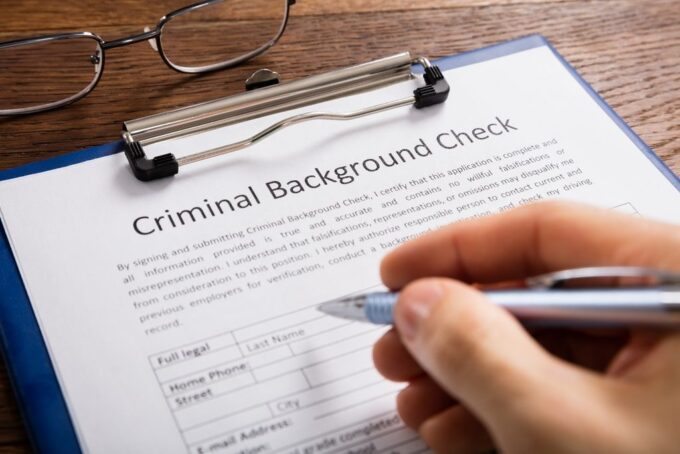Running thorough background checks on your prospective tenants during the screening process is not optional because you need to know who’s renting your property. Although you’ll never know everything about a person from a background check, it will help you filter out people you don’t want in your unit.
This is something all professional property managers do for their clients. For example, Green Residential, a popular Houston property management company, puts applicants through a rigorous screening process to ensure their clients get reliable, trustworthy tenants.
To maximize your likelihood of securing a reliable and responsible tenant, it’s essential to be vigilant for certain red flags during the tenant screening process. By identifying and addressing these potential issues upfront, you can significantly reduce the risk of encountering problems later on.
Some key indicators to watch for include inconsistencies or gaps in employment history, previous eviction records, significant financial debts or defaults, criminal convictions or pending charges, and discrepancies in personal references or rental history. Conducting thorough background checks and verifying information provided by prospective tenants can help ensure a smoother and more successful rental experience for both parties involved.
1. A criminal history

Source: avail.co
Under The Fair Housing Act, landlords can’t state that criminal convictions will result in a denied application, but you can deny applicants with a criminal record when the crime(s) might endanger the safety of your property or other tenants. It’s up to you to decide if that’s the case with each tenant with a record.
2. Evictions on their record
Not all evictions are a bad sign. Sometimes people lose their jobs, and circumstances are bad for a while until they get better. However, people with a history of multiple evictions are a huge red flag. If you’re going to make an exception for an eviction, it’s best that it be at least ten years in the past to be sure the person has recovered from whatever circumstances put them into that position.
3. A bad or low credit score

Source: rentalawareness.com
There are so many different reasons people have low or bad credit. Sometimes people don’t have credit because they don’t have bills that get reported. Other times, bad credit is caused by student loan debt or late credit card payments. Sometimes, it’s the result of missing rent payments.
Credit scores can give you insight into how a tenant spends their money and what they prioritize. However, if someone is in debt with bad credit and open accounts, it could be a sign that they are living on credit, which will only spell bad news for you.
When considering making exceptions for individuals with poor or low credit scores, it’s crucial to approach the decision with caution, as their credit history may not always provide a complete picture of their financial circumstances. Delve deeper into their situation, perhaps through discussions or additional documentation, to gain a comprehensive understanding before finalizing any agreements. This thorough approach can help mitigate potential risks and ensure a more informed decision-making process regarding their eligibility for rental arrangements.
4. Frequent moves

Source: primior.com
When someone has a history of relocating constantly without a good reason, it can be a sign that they are unstable, either financially or otherwise. You want tenants who will stick around long-term and not just bail on the lease. Unless a prospective tenant was dealing with military deployment, employment relocations, or has another logical explanation, frequent moves are a red flag.
You can inquire about the reasons behind someone’s frequent moves and empathize with their experiences, but if their history reveals a pattern of disputes with previous landlords or unfortunate events, it’s essential to consider how this might impact your own rental experience, as you could potentially encounter similar challenges in the future.
5. Unverifiable income
Verifying your tenant’s income is just as important as making sure they’re not a dangerous criminal. After all, if they don’t pay rent, you lose money by the day. Most landlords require tenants to earn at least three times the rent to make sure they get paid. If you can’t verify an applicant’s income on paper, it’s best to skip to the next person.
6. The tenant is in a hurry to move in

There are plenty of legitimate reasons someone might be in a hurry to move into a home. For instance, they might have been forced out of their apartment through a protective order, their current house may have been damaged and is unlivable, or they’ve reached the end of their term with their previous landlord, it’s crunch time, and they’ll be homeless soon.
There are also many sketchy reasons people rush to move into a new place, like running from trouble they’ve caused with their previous landlord. You’ll want to ask why they’re in a hurry to move in, and make sure you run a background check before making any decisions.
Sometimes professional tenants will try to offer rent in advance to move in if you’ll skip the background check, and this is a terrible scheme to get caught in.
Use your discretion
Since red flags can sometimes be false alarms, and people have legitimate reasons for moving frequently or not having strong credit, use your best judgment when selecting tenants. Hold applicants to high standards, but don’t be afraid to make an exception if you find a tenant you really like.







